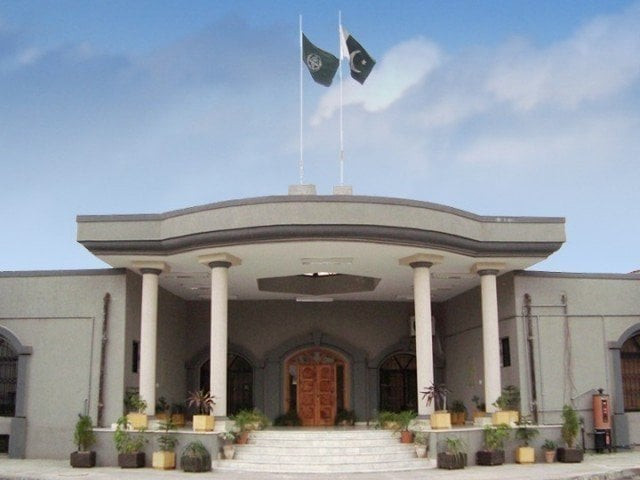PTI legal team mulls moving IHC for bails
Petitions expected to be filed today as leaders face blasphemy cases

The PTI’s legal team is considering approaching the Islamabad High Court, seeking protective bails of party leaders who were charged in blasphemy cases.
The FIRs were lodged on Sunday against PTI Chairman and former premier Imran Khan and other top leaders of the party in Faisalabad and other cities of Punjab over their alleged involvement in the incident in Masjid-i-Nabwi, where some Pakistani pilgrims shouted slogans against the new government and ridiculed Prime Minister Shehbaz Sharif and the federal ministers.
It has been learnt that the PTI is considering approaching the IHC to obtain protective bails during the Eid holidays. It is expected that the petitions would be filed in the IHC on Monday (today).
Supreme Court Bar Association (SCBA) President Ahsan Bhoon expected that the FIRs would not be used for political victimisation. “The government must ensure action against the people involved in the act only.”
Read Pakistani pilgrims held for ‘disrespecting’ Masjid-e-Nabwi
The SCBA president regretted that the PTI should have condemned the incident that occurred in Masjid-i-Nabwi.
Former IHC judge Shaukat Aziz Siddiqui, who is in Madina these days, requested Chief Justice of Pakistan Umar Ata Bandial to take notice of the incident.
He alleged that a conspiracy was hatched in Pakistan wherein former interior minister Sheikh Rashid was one of the culprits.
Siddiqui also requested for the formation of a joint investigation team for this matter.
Legal expert Advocate Hafiz Ahsaan Ahmad Khokhar, while commenting on the issue, said sections 3 and 4 of the Pakistan Penal Code (PPC), 1860 had clearly dealt with the situation and extension in its jurisdiction for such offences.
“Any person liable, by or under any Pakistani law, can be tried for an offence committed beyond the country and shall be dealt with according to the specific provision of the PPC for any act committed beyond Pakistan in the same manner by a person as if such act had been committed within the country,” he elaborated.
“However, this is subject to other provisions of relevant laws as well and not otherwise for initiating such legal action as of registration of a case under the PPC.”
Khokhar opined that as per Section 196 of the Criminal Procedure Code (CrPC) 1898, it was clearly written and legally essential that no court “shall take cognisance of any offence punishable under Chapter VI or IX-A of the PPC (except Section 127), or punishable under Section 108-A, or Section 153-A or Section 294-A, or Section 295-A or Section 505 of the same code, unless a complaint was filed by the order of or under authority from the federal or the provincial government concerned, or some officer empowered in this behalf by either of the two governments”.
According to the legal expert, there was a mandatory legal prerequisite as per Section 196 of CrPC that an FIR could only be registered under Section 295-A of the PPC only under the authority of either federal or provincial government or through its authorised representative, and not otherwise.
“The same principles for interpreting Section 196 of CrPC and Section 295-A of PPC have been discussed by the superior courts through their various reported judgments.”
The legal expert noted no person could be legally tried two times in any jurisprudence for the same offence – first in the country where they committed the offence and the second where they possessed the domicile.
He emphasised that there was no place on earth as venerated, as central or as holy to as many people as Makkah and Madina.
He added that Masjid-i-Nabwi was the second holiest mosque in Islam after Masjid al-Haram in Makkah and it was against Islamic injunctions and etiquette to speak loudly there.



















COMMENTS
Comments are moderated and generally will be posted if they are on-topic and not abusive.
For more information, please see our Comments FAQ